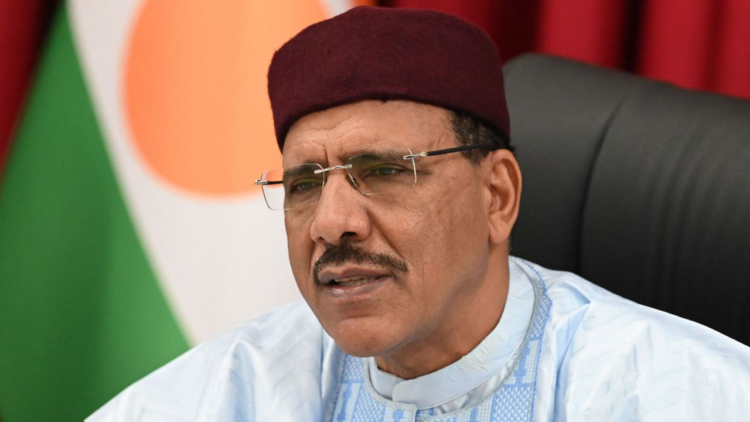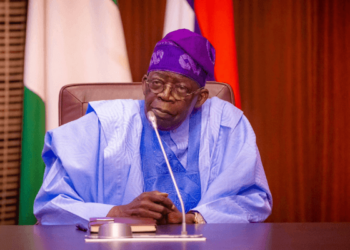Silence is mostly the platform of growth. In the midst of silence; growth is attained. When sounds are heard, the destroyer may not be far from unleashing massive destruction. Just like sometimes silence becomes a virtue, in some other times, silence is acquiescence with the oppressors. It is what the American author and poet, Ella Wheeler Wilcox, sums up: “To sin by silence when they should protest makes cowards of men”.
Much as growth is attained in silence; deploying silence sometimes as a tool could be devastatingly unethical in managing the affairs of men and women. Gaton Bachelard insists that humanity suffers “in the fact that we hesitated to speak. It was born in the moment when we accumulated silent things within us”.
Amidst the tyranny confronting human societies, silence has always served as the veritable embodiment of oppressive systems that unleashed unrestrained tyranny on citizens. Getting the electorate to cringe before the corridor of power has led to the dehumanisation of men and women.
The resistance of silence has led to the collapse of kingdoms. Even when “the most common way people give up their power is by thinking they don’t have any”, as declared by Alice Walker, humanity has always walked its way to the Island of freedom. However, because power corrupts and absolute power corrupts absolutely, man has refused to end his quest for a better society devoid of tyrannical powers. The path to improved society for humanity is as old as mankind. This is a journey that often leads to the broadening of frontiers for the incoming generation. Since human problems are inexhaustible, man is often not weary in fighting injustice for a prosperous future intended for the common good.
According to former South African President, Nelson Mandela, “As long as poverty, injustice and gross inequality persist in our world, none of us can truly rest”. When silence is observed to embolden oppression, those who rise up against the wings of tyranny are always remembered as declared by civil rights leader Martin Luther King Jnr: “In the end, we will remember not the words of our enemies, but the silence of our friends”.
In the society’s struggle for the enthronement of justice and rule of law, neutrality is detested as one is either on the side of victim or the oppressor. To be neutral is akin to standing with the oppressor to elongate the long night of oppression suffered by victims as postulated by Archbishop Desmond Tutu of South Africa: “If you are neutral in situations of injustice, you have chosen the side of the oppressor. If an elephant has its foot on the tail of a mouse and you say that you are neutral, the mouse will not appreciate your neutrality”.
The true essence of humanity is standing up for justice at all times. Any person that cannot die for a cause can’t be trusted to live for anything. The willingness of a man to lay down his life for a cause makes him noble and heroic. That’s the reason men go to war. They may not live to see the fruition of their supreme sacrifices; but they have supreme faith that dying for a cause makes them the noblest of humanity.
At the turn of the 21st century, democracy swept across Africa; introducing hope that government by the ballot became a new song in the Blackman’s continent that played host to colonial powers that divided the Continent into territories. Sadly, some of these countries that once held the hope of a new dawn for democracy are now reverting to the rule of gunmen. Democracy that was once seen and embraced as a government of both the present and future is now retreating into a threatening dungeon of despair and gloom. Leaders in African democracies are waking up to the new realities of witnessing the popular form of government thrown down the slippery slope of insurrection.
When Head of the Presidential Guards in Niger Republic, Abdourahmane Tchiani, recently swept away the democratically elected president of his country, Mr. Mohamed Bazoum, shocking waves of anxiety ran through the West Africa sub-region. As the latest entrant into the club of African countries now under military rule, the prospect of deepening democracy in Africa is gradually taking a back seat.
The Economic Community of West African States (ECOWAS) has placed sanctions on the junta by ensuring the return of Bazoum as Niger’s elected president. The precarious situation has assumed a new dimension as Algeria has deployed troops and weapons of war along its borders with Niger Republic and declared its support for the military jackboot government. While tension is building over the latest coup, President Bola Ahmed Tinubu, who is the ECOWAS Chairman, this week dispatched a delegation, led by former Head of State, General Abdulsalami Abubakar (rtd), for reconciliation, in line with the seven-day ultimatum handed down on the coupists by ECOWAS leaders. In response to the ECOWAS’ ultimatum, the junta yesterday severed diplomatic ties with Nigeria, Togo, United States of America (USA) and former colonial master, France. By calling the bluff on ECOWAS, the Tchiani-led junta is set not to allow democracy to return so soon to Niger Republic as demanded by the sub-regional body.
While it is obvious that democracy remains the only popular form of government, the swell of support of Nigerien citizens for the junta regime should be viewed with caution by the international community. It remains a rancorous debate that at what level should ECOWAS play in order not to interfere with the sovereignty of the Nigerien people. Should ECOWAS interfere militarily to restore a democratic government hated by citizens? Going by the support by Nigeriens for the junta, caution must be applied by leaders of the sub-regional body. For now, the clouds are thickening over the skies of Niger Republic; caution must be exercised to ensure that the firing pin is not activated.
The non-improvement of the electoral process and the desperation of politicians remain the bane of democracy in Africa, among countries of the world. While some so-called democratic leaders have embraced the sit-tight option, others have insisted on constitutional review for third and, in some other countries, life terms, in violation of democratic ethos. The Nigerien coup should serve as lessons to not only African democratic leaders, but also to the sub-region. The best recipe for standing up for democracy is ensuring elected leaders stand for citizens and not work against the people. If not handled carefully, the coup incidence in Niger can spiral out of control and lead to yet another frightening spectre for not only the sub-region but also the continent.
The rising tension in Niger should not be allowed to become an arena for super power nations to demonstrate their military prowess in a region made poor by endemic corruption. While peaceful dialogue is ongoing to resolve the political quagmire, silence by citizens of that country must be avoided as citizens make the resolve to stand up for democracy. More than any other time, the present coup quandary must task Nigerien citizens with the mandate of pulling democracy through the present blight of uncertainties by resolving the matter amicably with external interference.
The promotion of an open society where all are free to speak up for democratic governance works for the interest of the overall majority under a democratic setting. The military can only torpedo democracy when those who serve in its temple fail to serve the popular will of the electorate. Democracy thrives more when citizens are active participants in governance, and allows a cabal to hijack power for selfish interests. Africa can only experience a new dawn when it comes to the realisation that military coups are only outcomes of failed democracies. The best antidote for obliterating coups from Africa’s political landscape is good governance. It is only when citizens participate in democracy and not allow power seekers to dictate and manipulate the electoral process that the doors can be shut against jackboot regimes.














